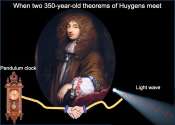New technique could make modeling molecules much easier
Much like the humans that created them, computers find physics hard, but quantum mechanics even harder. But a new technique created by three University of Chicago scientists allows computers to simulate certain challenging ...









